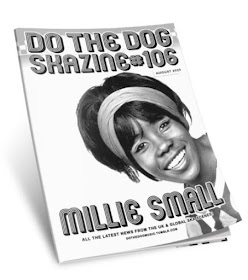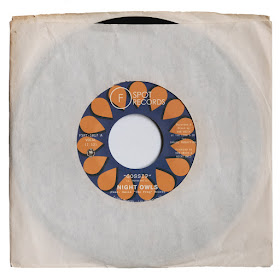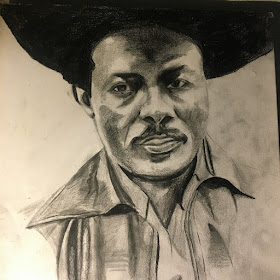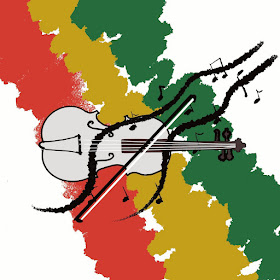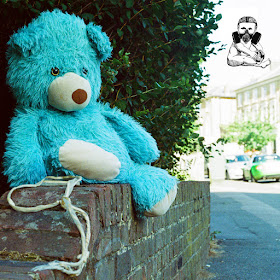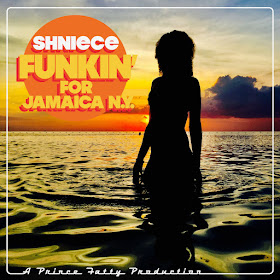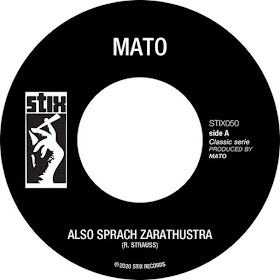 |
| The Go-Go's in 1980 (l-r: Margot Olavarria, later replaced by Kathy Valentine, Jane Wiedlin, Charlotte Caffey, Gina Shock, and Belinda Carlisle). |
Both The Specials and Madness were so completely gobsmacked by The Go-Go's that each invited them to tour with them in the UK later that year. So, The Go-Go's manager Ginger Canzoneri pawned her jewelry and sold her car and anything else of value to finance the trip overseas, and The Go-Go's spent about three months in 1980 opening for Madness and The Specials on various tours of the UK (including The Specials' 1980 seaside tour with The Bodysnatchers), oftentimes enduring hostile reactions from the less open-minded ska fans (particularly NF skinheads). Having said that, The Go-Go's one-off single for Stiff Records "We Got the Beat" sold reasonably well (and helped them secure a record deal with Miles Copeland's I.R.S in the US), and the many romances between members of The Go-Go's and The Specials yielded musical dividends. Terry Hall and Go-Go's rhythm guitarist Jane Wiedlin's under-the-radar romance led them to co-write "Our Lips Are Sealed," which became a massive hit, first in 1981 for The Go-Go's and then for Fun Boy Three in 1983; and Wiedlin, Belinda Carlisle (Go-Go's singer), and Charlotte Caffey (Go-Go's lead guitarist) were invited to provide backing vocals on much of The Specials' second album, More Specials.
In The Go-Go's documentary, both Madness' Lee Thompson and The Specials' Lynval Golding are featured and sing The Go-Go's praises. Thompson frames how unique The Go-Go's were at the time: "An all girl band who wrote their own tunes--outrageous!" And Golding notes how important The Go-Go's were to The Specials' story and vice versa (and declares that he was so crazy for Go-Go's drummer Gina Shock that he should have asked her to marry him, even though he knew the answer would have been no). Sharp-eyed ska fans will catch Walt Jabsco making a brief appearance in one of the doc's animated segments.
+ + + +
The Go-Go's documentary can be seen on Showtime (and through streaming services like Amazon Prime and Hulu that carry Showtime); the trailer for the doc is here.
+ + + +




